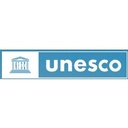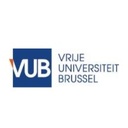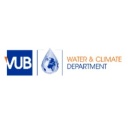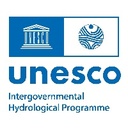Executive Secretary

XIV International Symposium on Structures, Geotechnics and Construction Materials
ESTRUCTURAS 2025
4th Colloquium on Analysis and Design of Hydraulic Works
Abstract
In the Annual Thematic World Water Development Report produced by the United Nations since 2018, the topic of Nature-based Solutions (NbS) was addressed without categorically stating that it is a universal solution or remedy, but its conclusion is clear: they are one of many important tools to effect the transition to a more holistic approach to water management.
By 2050, the planet is expected to be home to some 9.6 billion people, resulting in complex social and economic challenges, including growing demand for food, energy and water use. This, coupled with climate change, requires new solutions capable of meeting the growing challenges of water security.
In international practice, there are a number of challenges that hinder the application of BNS for managing water availability and quality and for managing variability and reducing risks from water-related natural disasters. These include challenges in the policy environment, awareness and perception, technical and design challenges, and finally the need for financial and regulatory resources. In our country, the National Economic and Social Development Plan until 2030 includes the need to guarantee the protection and rational use of natural resources, the conservation of ecosystems, and the care of the environment and the nation's natural heritage for the benefit of society.
However, in our economy, most of the resources follow a linear system based on extraction, manufacture, use and disposal, without the possibility of choosing to be reused, this practice causes the depletion of natural resources, this linear system is reflected in the integral cycle of water where it goes through different phases until it is returned to nature.
This research investigates the perception and training of policy makers to use NbS, as well as to recommend their use in different scenarios. It is concluded that the promotion of NbS leads to economic and social benefits, that efforts should be made to raise awareness and training based on disseminating their effectiveness, to improve water management and security, as well as the need to support initiatives aimed at seeking sources of financing for their implementation
Resumen
En el Informe Mundial Anual Temático sobre el Desarrollo de los Recursos Hídricos que elabora las Naciones Unidas, desde 2018 se trató el tema de Soluciones basadas en la naturaleza (SbN) sin afirmar categóricamente que sea una solución o remedio universal, pero su conclusión es clara: son una de las muchas herramientas importantes para efectuar la transición a un enfoque más integral de la gestión hídrica.
Se prevé que para 2050, habitarán en el planeta alrededor de 9.600 millones de personas, lo que resultará en complejos retos sociales y económicos, que incluyen la creciente demanda de uso alimentario, energético e hídrico. Esto, unido al cambio climático requiere de nuevas soluciones capaces de hacer frente a los crecientes retos de seguridad hídrica.
En la práctica internacional se manifiestan una serie desafíos que dificultan la aplicación de las SbN para la gestión de la disponibilidad y la calidad del agua y para la gestión de la variabilidad y la reducción de riesgos por desastres naturales relacionados con el agua. Entre ellos se cuentan los desafíos en el entorno del trazado de políticas, la sensibilización y percepción, los desafíos técnicos y de diseño, y por último la necesidad de recursos financieros y normativos. En nuestro país está concebido dentro del Plan Nacional de Desarrollo Económico y Social hasta el 2030, la necesidad de garantizar la protección y el uso racional de los recursos naturales, la conservación de los ecosis¬temas, y el cuidado del medio ambiente y del patrimonio natural de la nación en beneficio de la sociedad.
Sin embargo, en nuestra economía, la mayor parte de los recursos siguen un sistema lineal basado en la extracción, fabricación, utilización y eliminación, sin posibilidad de optar a ser reutilizados, esta práctica provoca el agotamiento de los recursos naturales, este sistema lineal se ve reflejado en el ciclo integral del agua donde ésta realiza un recorrido por diferentes fases hasta ser devuelta a la naturaleza.
Esta investigación indaga en la percepción y capacitación de los decisores de políticas para utilizar los SbN, así como recomendar su utilización en diferentes escenarios. Se concluye que el fomento de las SbN conduce a beneficios económicos y sociales, que se deben hacer esfuerzos para la concienciación y capacitación a partir de divulgar su efectividad, para mejorar la gestión y la seguridad hídrica, así como, la necesidad de apoyar las iniciativas encaminadas a buscar fuentes de financiamiento para su implementación.
About The Speaker

Dr. Lesday Martínez Fernández

Profesor Titular, vice decana de investigación y posgrado
Discussion









